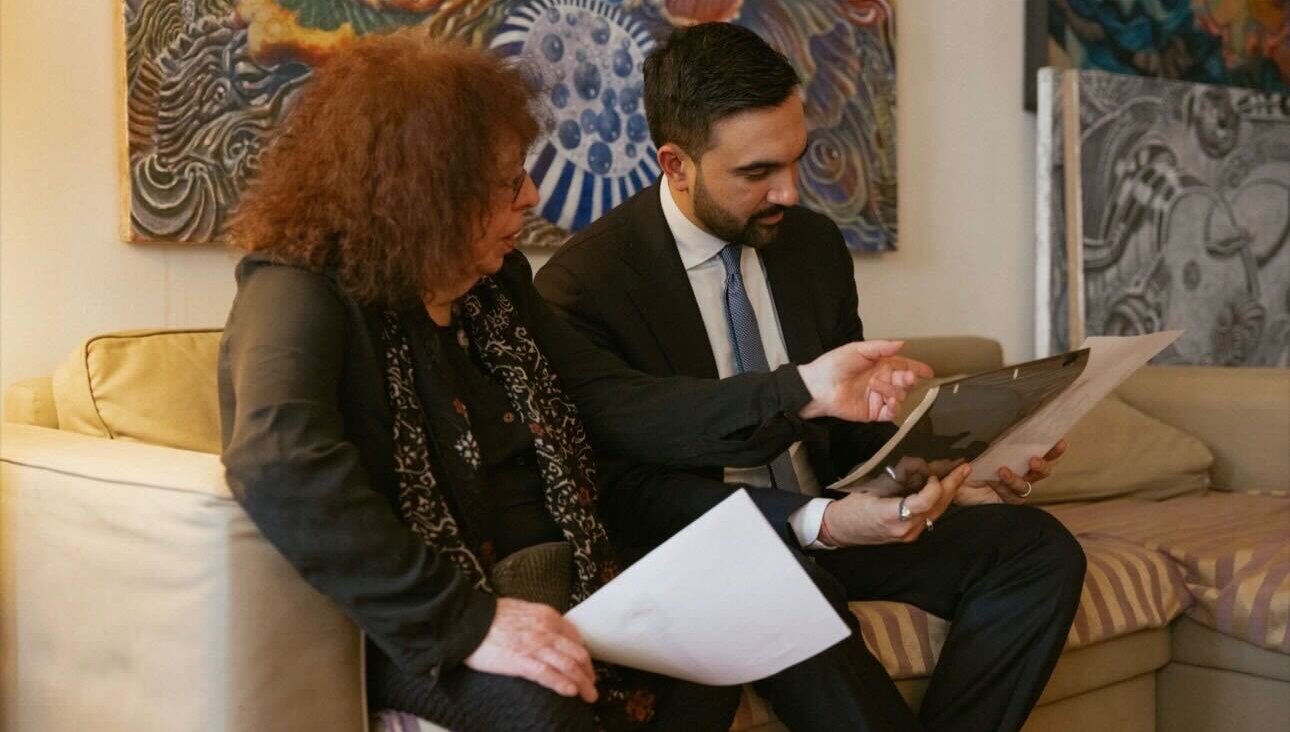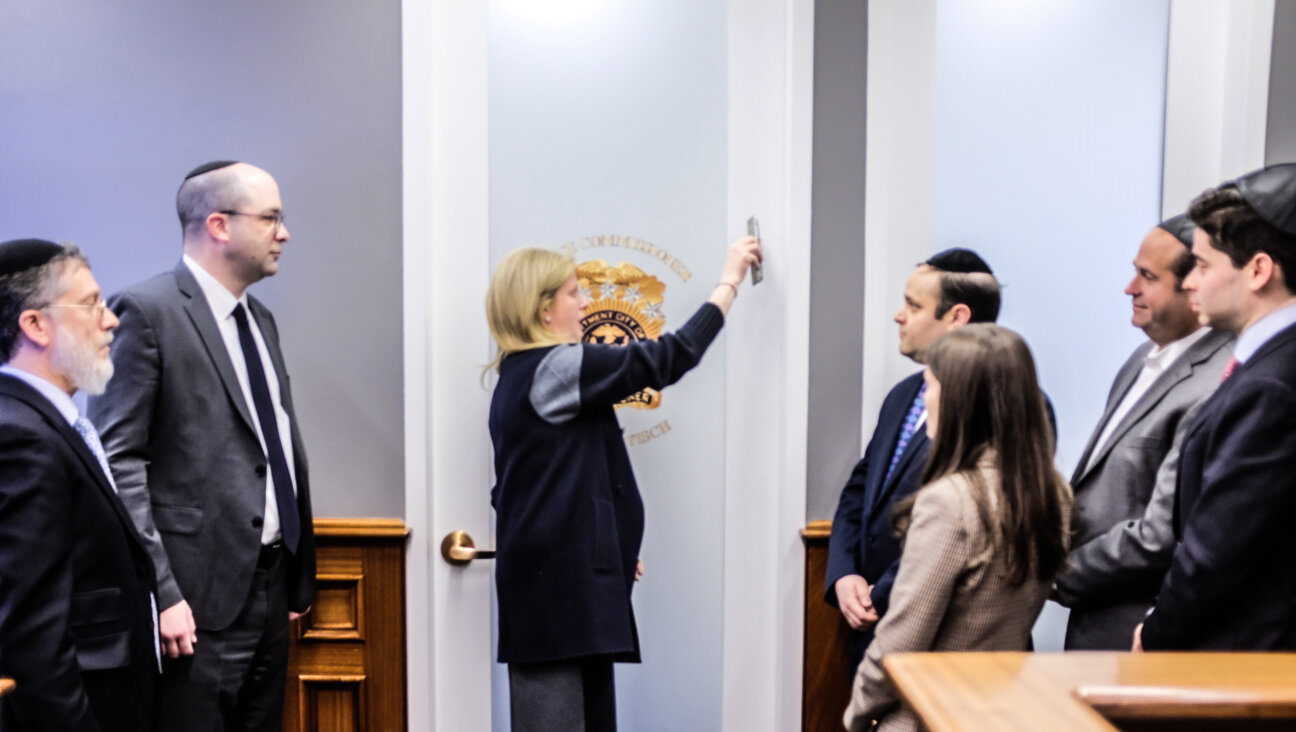Bloody Murder of American Business Student Stuns Tel Aviv — and Joe Biden

Graphic by Angelie Zaslavsky
The bloody murder of an American business student in a tourist area of Jaffa, a seaport city adjacent to Tel Aviv, stunned tourists in Israel’s vacation hub — and shocked a university campus thousands of miles away in Tennessee.
Taylor Force, a 29-year-old student at Vanderbilt University in Nashville, was stabbed by a Palestinian as he strolled around Jaffa with his wife, who was also gravely injured in the attack.
“It’s a little bit scary and a little bit jarring,” said Michael Appleby, a warehouse assistant from London, who had arrived to Tel Aviv to visit a friend.
Vice President Joe Biden said his wife Jill and their grandchildren were dining on a Tel Aviv beach when the attack unfolded “not very far” away.
“I don’t know exactly whether it was a hundred meters or a thousand meters,” Biden, on a visit to Israel, told reporters about Tuesday’s assault.
“It brings home that it can happen, it can happen anywhere, at any time,” he said, after meeting Israeli Prime Minister Benjamin Netanyahu in Jerusalem.
Appleby’s friend assured him that Tel Aviv was the safest place in the country, even as Jerusalem and the Israeli-occupied West Bank have been rocked with knifings, shootings and car ramming attacks in recent months.

Image by Getty Images
Jaffa was high on his list, since it features prominently in British history as the site of the last battle between crusader Richard the Lionheart and Sultan Saladin.
Appleby will still go to Jaffa, he said, “during the day.”
The rampage that claimed the life of Force unfolded as tourists strolled along the vibrant waterfront on a warm early spring evening.
A Palestinian from the West Bank pulled out a knife and started slashing Force, his wife and another victim. He ran towards a nearby restaurant where he stabbed four more people before being shot and killed by police.
Force and other Vanderbilt students had gone to Israel to explore the fast-growing technology sector.
“This horrific act of violence has robbed our Vanderbilt family of a young hopeful life and all of the bright promise that he held for bettering our greater world,” said Vanderbilt Chancellor Nick Zeppos. The trip was designed to focus on global entrepreneurship and exemplifies the growing focus of technology as a key component of Israel’s economic success.
Along with learning from the vaunted so-called start up nation of Isreali tech firms, Force was expected to “share his insights and knowledge with start-ups in Israel,” Zeppos said.
Force was a West Point graduate and a veteran artillery officer who served in Iraq and Afghanistan.
Since October, Palestinian stabbings, shootings and car rammings have killed 28 Israelis and two U.S. citizens. Israeli forces have killed at least 179 Palestinians, 121 of whom Israel says were assailants. Most others were shot dead during violent protests.
Tourism in Israel has been known to fluctuate depending on the security situation. During the Second Intifada, Israel experienced the “most serious crisis in tourism,” according to the Israeli Central Bureau of Statistics. Between 2000 and 2001, the first two years of the second intifada, tourist numbers dropped by more than half, and recovered when the intifada ended.
Tourism in February in Israel actually rose a tiny bit over last year’s numbers in the same month, according to tourism ministry figures. But overall, tourism in Israel has suffered over the past three years, especially since the 2014 war in Gaza. February’s tourism numbers were down 17 percent compared with 2013, Israel’s best year for tourism to date.
Ricky Springer, a welder from Oklahoma, and Jesse Boyd, a martial arts instructor from North Carolina, came to Israel as Christian Zionists on a lengthy trip.
Walking around South Tel Aviv with backpacks on, they had not heard about the stabbing that had taken place less than a mile away.
“Concerning this stabbing, I am wearing an ‘Am Yisrael Chai’ shirt” — the slogan means “The Nation of Israel Lives” — “and I am not taking it off,” Springer said.
“As a tourist, it makes me feel like I can stand side by side with the Jewish people as there are attacks and say, ‘I stand with you.’”
Boyd said that he felt safe in Israel, even though “we can’t carry guns like we do in America.” Safety is relative, he added: “If I looked at news in America about New York City I could never go there.”
“We know that (Israelis) are constantly in a state of war,” said Anna Vasilevskaia, visiting from Moscow.
Vasilevskaia said she was surprised at the lack of police and security guards in Tel Aviv. But she said, “it feels very safe.”
Later that afternoon, she was planning to rent a bike to Jaffa. Her mother warned her against going, but she was undeterred. She knew what to expect in Israel, she said.















